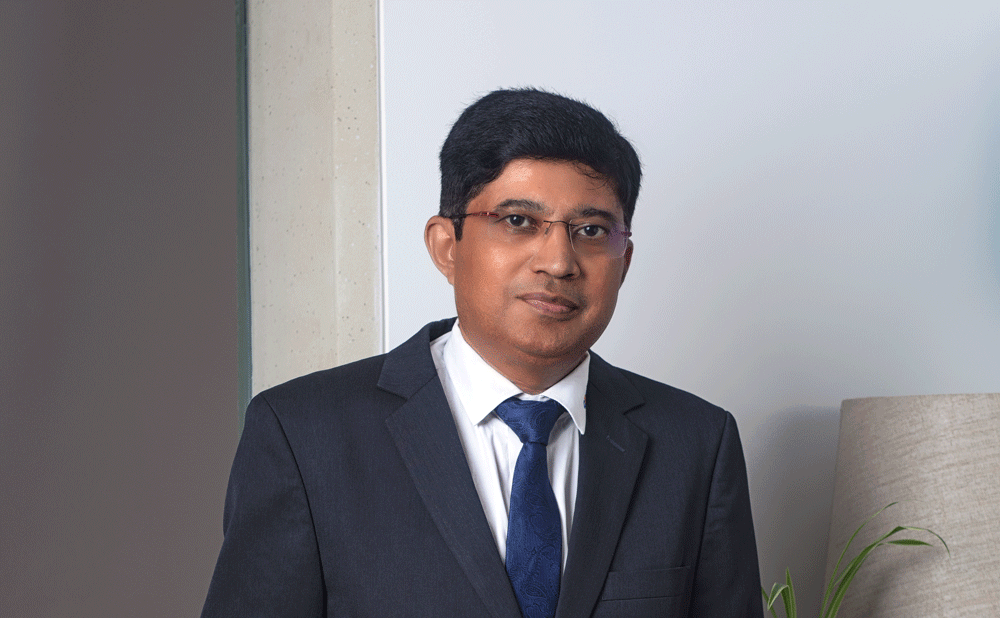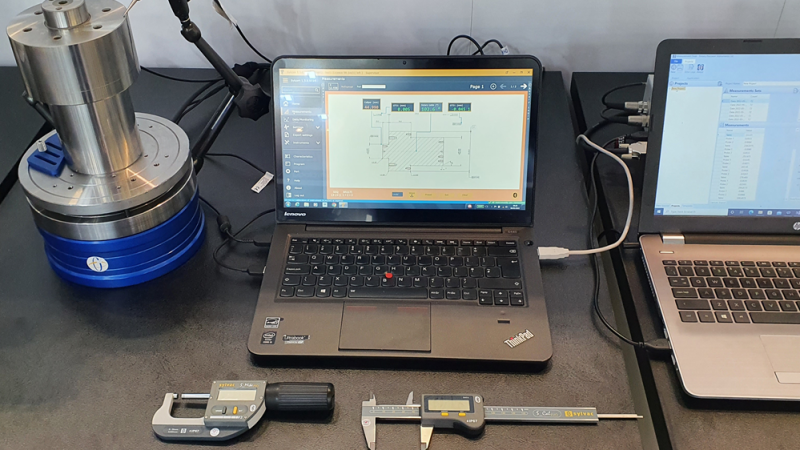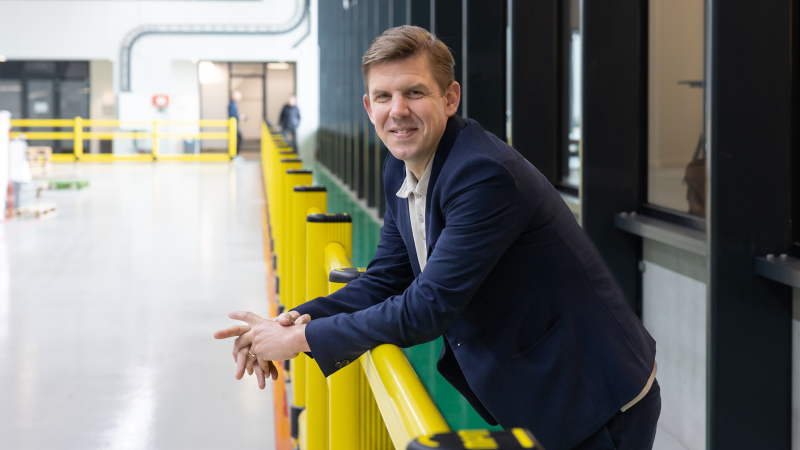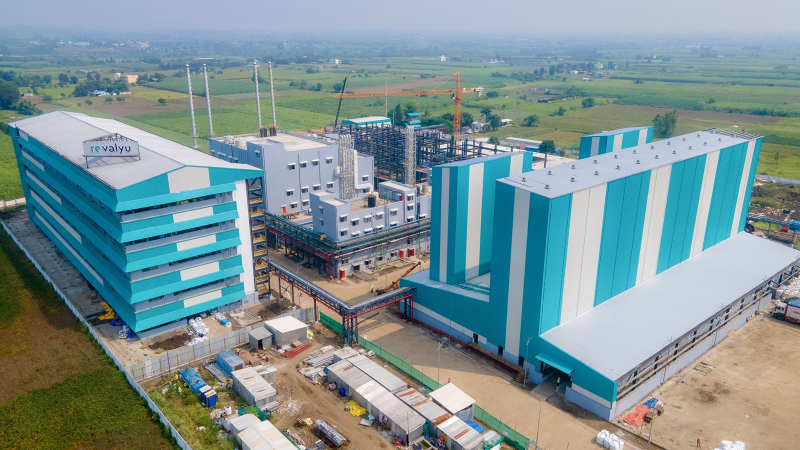CEAT, an iconic brand with over 100 years of history, traces its roots as a manufacturer of electrical cables for telephones and railways back to Italy. In 1958, CEAT entered the Indian market and was acquired in the early 1980s by the RPG Group, one of India’s oldest and most diverse business conglomerates.
Today, CEAT is head-quartered in Mumbai and is the flagship company of the RPG Group. With over 7,000 people in its six production facilities in India, the company makes high-performance tyres, catering to various segments including passenger and utility vehicles, 2-3 wheelers, commercial vehicles and off-highway vehicles.
“We generate annual revenues of approximately $1.5 billion and manufacture around 140,000 tyres daily, exported to over 110 countries. With a stronghold in the Indian tyre market, CEAT is a leader in two-wheeler tyres, holds a strong third position in the passenger car tyre segment, and commands a significant position in the commercial tyre segment,” says Jayasankar Kuruppal, SVP Manufacturing.
He further affirms that CEAT is a TQM company – the company is the first tyre brand in the world to receive the prestigious Deming Grand Prize from the Union of Japanese Scientists and Engineers (JUSE), for outstanding achievement in the field of Total Quality Management. It is also the first tyre brand in the world to be awarded Lighthouse Designation by the World Economic Forum for the digital transformation in its manufacturing processes, at its largest plant in Halol, India.
In the world of tyre manufacturing, adapting to changing market demands and technological advancements is crucial for staying competitive and CEAT is among the few tyre makers that has demonstrated this adaptability.
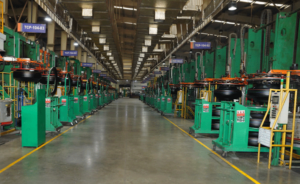 Continuous improvement
Continuous improvement
Asked what makes the company so successful, Kuruppal highlights its unwavering focus on the customer, the passion for continuous improvement across all functions and its dedicated workforce. The focus is on building sustainable and innovative processes and products by introducing cutting-edge technologies to achieve and strengthen CEAT’s vision of “Making Mobility Safer and Smarter. Everyday.”
“We are not alone on our growth journey – suppliers have been an integral part of it,” he notes. “We view suppliers as partners, engaging them in long-term material planning, continuous improvement projects, and TQM training. We also support them in implementing practices to reach their own sustainability goals. We help them on their development journey, and they grow with us.”
However, even highly successful companies like CEAT have not been spared the challenges arising from the current volatile market environment, admits Kuruppal. “Like everyone else, we have been affected by raw material price volatility. For example, just over the past six months, the price of raw materials, which constitutes 60-65% of tyre production expenses, has increased by 10%. This is unprecedented.”
Other challenges include European regulations, such as deforestation laws, that also impact cost, and supply chain disruptions, particularly as CEAT is one of India’s largest tyre exporters.
“To counter these issues, we have focused on optimizing material procurement, managing inventories efficiently, innovating recipes and enhancing operational efficiencies across our value chain,” Kuruppal adds.
Digital transformation
In 2021, CEAT launched a robust digital transformation initiative. This effort aimed to address capacity losses due to the adoption of greener materials and tightening customer specifications in global markets.
“To this end, we have invested $3.5-$4 million so far in digital initiatives. We have implemented Industry 4.0 technologies such as IoT, AI, and predictive analytics, and achieved significant improvements including a 15% reduction in energy consumption, a 25% reduction in process scrap and a 25% decrease in factory conversion costs since 2021. Every year, we initiate a number of projects, big and small, aimed at achieving further improvement.”
He further points out that as in every country, sustainability is a big topic in India, especially as CEAT’s customers, prime global OEMs, are increasing their sustainability demands on the supply chain. CEAT is committed to reducing its environmental footprint and has aligned its goals with the Science Based Targets initiative (SBTi).
“We are aiming at a 50% reduction in Scope 1, Scope 2, and select Scope 3 emissions by 2030, and an increase in renewable energy usage, currently at 37%, to 50% at all of our factories within the next two years. We have a dedicated roadmap to incorporate 40% sustainable materials in all our tyres by 2030. We also aim at increasing sea transportation, as an alternate means to reduce our carbon footprint, among other initiatives within our supply chain.”
CEAT is a socially responsible company, and leads in gender diversity, being the first in India to employ women in tyre-building roles at shop floor. Women now constitute 30% of its workforce in newer factories. “We actively contribute to social welfare through various initiatives, including training and environmental programmes as well as running a fever clinic during the monsoon months, to name just a few,” says Kuruppal.
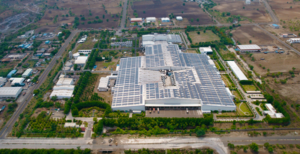 Continuing the legacy
Continuing the legacy
Speaking about the market environment, he notes that manufacturing in India has a very positive outlook. “As such, we have pushed aggressively for capacity expansion, having invested approximately $100 million annually over past few years,” he says.
Over that time, CEAT has commissioned three greenfield factories: India’s largest two-wheeler tyre facility, with a daily capacity close to 78,000 tyres; a car radial tyre facility located in Chennai, with a daily capacity of 20,000 tyres; and an agricultural and off-road tyre facility near Mumbai, with a capacity of 100 metric tons per day.
Kuruppal further reflects that India’s manufacturing sector is positioned as a key alternative to China for global companies. The Indian economy is expected to grow more than 6%, making it one of the fastest growing in the world, ready to become the third largest economy in the next three years.
Given global market developments, CEAT seems to be in the right place at the right time. With its strategic focus on digital transformation and operational efficiency, CEAT is well poised to push for further growth, continuing its century-long legacy.
